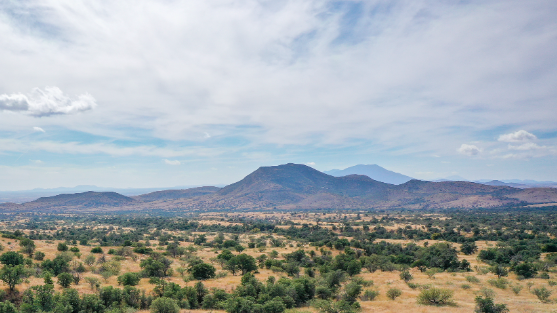The Biden administration’s border policies have led to a mass influx of illegal immigrants, and ranchers are increasingly concerned that they will bring with them a highly contagious virus that could cost billions and decimate the livestock industry.
Foot and mouth disease (FMD) is a highly contagious virus that affects cows, pigs, sheep and other animals with cloven hooves. Todd Wilkinson, a South Dakota rancher who also serves as president-elect of the National Cattlemen’s Beef Association (NCBA), told Fox News Digital it is only a matter of time before FMD makes its way across the southern border.
"Our border is just so porous, if that disease comes in, it’s just going to devastate the industry. And frankly, I don’t know how it’s been kept out to this point," Wilkinson said.
FMD circulates in 77 percent of the global livestock population, primarily in Africa, the Middle East and Asia, along with parts of South America. The U.S. has been free of FMD since 1929.
Customs and Border Protection has told Fox News Digital there are an average of 6,858 migrant encounters at the border every day, and Wilkinson predicted this is where FMD could enter the U.S.
"It can come in, certainly, with animals. It can also come in on a meat product. So there’s a number of ways it’s going to come in. But the most likely way it’s going to come in is some manure on the bottom of somebody’s boot," he said.
In 2001, a FMD outbreak in the U.K. resulted in the slaughter of more than 6 million pigs, cows and sheep, according to the BBC. That outbreak had an economic impact of between $12 billion and $18 billion. In the U.S., an outbreak contained to California could cost $6 billion to $14 billion. The economic impact of a nationwide agroterrorism attack could reach $228 billion, according to the Department of Agriculture.
If FMD does end up in the U.S., there is a mandatory 72-hour pause of all cattle movement, Wilkinson said, but he predicted the pause could be up to a week.
"Just think of that — no cattle moving anywhere in the country, or going in and out of the country, for up to a week… you’re going to see the beef industry just decimated," he said.
Speaking to a room full of ranchers at the NCBA’s annual convention, Wilkinson warned "a lot of us are going to lose our livelihood" if the disease hits the nation's livestock.
Alisa Ogden and Loren Patterson are on the front lines of the border crisis. Both New Mexico ranchers, they shared Wilkinson’s fears of the virus reaching the U.S.
"I think it’s a matter of time," Patterson told Fox News Digital.
More than 60 percent of all livestock entering the U.S. crosses the southern border at Santa Teresa/San Jeronimo in New Mexico, according to the New Mexico Partnership. From here, they go to every region of the U.S., Patterson said, and so FMD could quickly be "in every state," he added.
Ogden said there were other disease and health concerns as well, many of which were "unknown."
"It’s a huge unknown, you never know what’s going to be coming… It’s the unknown, and not being able to monitor what you’re producing, food for others," she said.
Wilkinson emphasized the importance of having processes in place to track FMD’s movements should it enter the U.S. as critical to preventing economic disaster.
"That’s why we’re so concerned about getting traceability in place, so that we can track those issues, and we can reduce the size of the quarantine very quickly," he said.
Todd Wilkinson, president-elect of the National Cattlemen’s Beef Association, predicts FMD will come into the U.S. on the bottom of someone's boot.
FMD is not transmissible to humans, and is different from hand, foot and mouth disease, often found in children.














